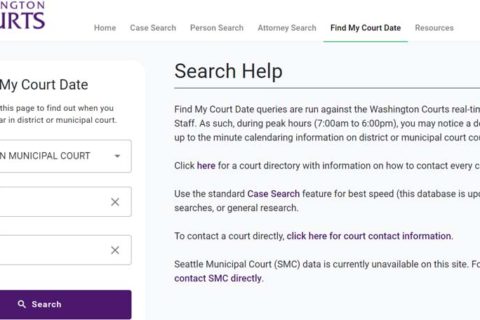Wage garnishment occurs when a court sends the result of a judgment against you to your employer and asks him or her to garnish a specific portion of your wages and send it to your creditor to reduce your debt. It can keep going until your debt is paid off.
Wage garnishment could be salary, wages, bonuses, commissions, or retirement income. Well, the common sources of wage garnishment are consumer debt, taxes, child support, and student loans. If you feel the wage garnishment is not fair and you don’t even know who did it, you can file a dispute as soon as you receive the court’s decision.

In addition, it’s very important for you to find out who is garnishing your wages if you believe you do not owe the debt or even didn’t receive proper service of the original lawsuit’s complaint. Okay, let’s dive into our post to find the information!
Who is Garnishing Your Wages?
It is known that wage garnishment will occur once a lawsuit is filed and a judgment is obtained, and the garnishment order will be provided to your employer. It will tell your employer to whom you owe it, how much you owe, how much they must withhold from your wages per month, and where to send the withholding.
It should be easy to find out who is garnishing your wages if you really have unpaid debts. Yes, your employer is the only one who will comply with a wage garnishment. To find out who orders your employers to garnish your wages, you can talk to your employer.
Usually, your employer will have a copy of the garnishment order that will tell you who is garnishing your wages. Your employer will then give you the case number or cause number so that you can provide it to the court in order to get the information you need. If you believe you don’t have unpaid debts, you can easily stop the garnishment.
Can You Stop Your Wage Garnishment?
Of course, yes! You can stop your wage garnishment. What you can do is fight it in court if you believe you do not owe the debt. If your wage garnishment was not fair, you can negotiate with your creditors and set up an agreeable payment plan.
Then, you have to find out how much you can pay based on what you owe and make sure to use it as leverage to negotiate a monthly payment. If you have some extra cash, you can add it as a lump-sum payment.
Through an installment agreement with the IRS, it can really stop your wage garnishment, as can paying your entire tax debt all at once. If you cannot do it, you can instead get an Offer in Compromise and then pay a reduced tax bill.
Another way to stop your wage garnishment is to confirm that you have a financial hardship exemption. Of course, you can go on “Currently Not Collectible” status. However, it is not permanent; it just delays the inevitable.
The last thing you can do to stop wage garnishment is to declare bankruptcy. You need to know that not all bankruptcies can stop wage garnishment, and not all tax debt is discharged in bankruptcy.
What Should You Do After Receiving a Wage Garnishment Judgement?
After receiving a wage garnishment judgment, you may have to read the judgment to verify that all of the information is accurate. If this is your first time receiving a wage garnishment judgment, you can try to consult a consumer law attorney or local legal advisor to determine what you should do.
There are two things you should do after receiving a wage garnishment judgment:
- Challenge the garnishment judgment if you believe you do not owe the debt or if it is causing undue harm to your finances.
- Accept the wage garnishment since you have unpaid debts to creditors.
If you accept the wage garnishment, you can contact your creditor to see how much you owe and figure out a payment plan and how much you can pay based on what you owe per month. After reaching an agreement, you can approach your employer and request that he or she garnish your wages on a monthly basis.
Another option you have is to pay off the garnishment. To do so, you can borrow money from a family member or take out a personal loan that can give you quick relief from the stress of a prolonged series of payments.

A bookworm and researcher especially related to law and citizenship education. I spend time every day in front of the internet and the campus library.





